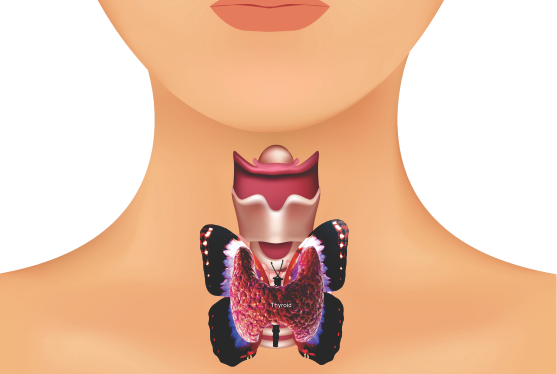I am often asked what the symptoms are for thyroid disease. There are many. It is important to note that any of the symptoms we will discuss here can apply to more than one condition. Fatigue, for instance can mean anything from thyroid or adrenal deficiency to infection, cardiovascular disease, blood sugar instability, insomnia, immune disorder and probably no less than 1000 other conditions! So it is important to look at the symptoms as a whole – the more of these symptoms you possess, the more likely it is that you have the condition. But that, in of itself, is not a diagnosis. It is imperative that the proper testing be done. Having said that, it is estimated that, based on today’s common testing, more than 13 million people are running around with undiagnosed hypothyroidism – and that was a finding in February 2000! It is estimated to be significantly higher than that now.
So how do you know if you have hypothyroidism (a low functioning thyroid gland)? The most common complaints are dry, coarse skin and hair, hair loss or breakage, thinning of hair along the outer edge of the eyebrows, cold hands and feet (or bodily coldness inconsistent with everyone else around you), fatigue and weight changes (especially unexplained weight gain). Other symptoms can be infertility or miscarriage, menstrual irregularities, bowel issues (especially chronic constipation), and muscle and joint achiness, carpal tunnel, tendonitis or plantar fasciitis. Women could also experience longer or heavier menstrual cycles, or worse menstrual cramps. Mental/Emotional symptoms include depression or anxiety (especially if they don’t respond to medications), difficulty concentrating, brain fog, or poor memory. A thick neck, swelling in the neck, especially the thyroid area, are classic thyroid imbalances.
In hyperthyroidism (over active thyroid), Mental/Emotional complaints include nervousness or irritability, anxiety, and panic disorder. Other symptoms such as insomnia, racing heart, irritable bowel, unexplained weight changes (especially losing weight too fast), hair and skin that are fragile and thin, and also hair loss are common. Women may experience shorter, lighter, infrequent or absent menstrual cycles. Increased perspiration, muscular weakness, especially of the limbs, and shaky hands, and even some vision changes are not uncommon signs of a hyper-functioning thyroid gland.
A condition referred to as “subclinical hypothyroidism” is frequently attached to people who exhibit a high number of hypothyroid symptoms, but according to their lab tests, they are “normal”. Meaning, they are not clinically considered having hypothyroid disease, but are just “under the mark”. This is not a medically recognized term, but rather is used mostly in the alternative medicine field. These are people who need thyroid support as the thyroid is weakening, and choose not to wait until they are sick enough for it to show up on their lab tests in order to be considered clinically “hypothyroid”, and therefore receive conventional medications. Subclinical hypothyroidism can be treated without medications using herbs, dietary protocols, acupuncture, and many other modalities. Many people believe they have sub-optimal thyroid function, because so many of their symptoms support that premise. Just because medical doctors can’t medicate it until the lab “proves” it exists, doesn’t mean that help isn’t available. There are many ways to successfully handle thyroid challenges before that.
©2013 Holly A. Carling, O.M.D., L.Ac., Ph.D.







